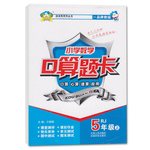题目内容
Jenny, from Germany, spent some time traveling in India. While she was there, she stayed with her Indian friend, Leela. However,there was a language barrier (障碍) for her there . It was very __ _ for her to communicate in the new environment, which was very different from ___ of her own country .
One day , together with Leela , Jenny went to __ an orphanage(孤儿院) . All the children there were very young. At first, Jenny was not sure _____ she could have a way to communicate with them. She went over to the children ____ and sat beside them. After some time, one of the children __ her. She felt a little relaxed and smiled _____. Then she went _____ to the child. She slowly put her are around the child and started a song in German .The child kept smiling and started repeating the words after her. The words that came from the little mouth were different from those that Jenny sang, but the rhythm was the same. Jenny sang a little __ and the child followed her again. Wanting to join in the another child went up to Jenny and started singing the rhythm . Then more children joined . They _ many smiles together .
From the other side of the hall , Leela was smiling and watching them. Noticing Leela’s ___ _on her, Jenny had an _ feeling from her heart :“ See, I don’t have any language barriers here. We __ speak and communicate!” At that moment , she understand : We are all simply human and we have ability to connect each other .
One day , together with Leela , Jenny went to __ an orphanage(孤儿院) . All the children there were very young. At first, Jenny was not sure _____ she could have a way to communicate with them. She went over to the children ____ and sat beside them. After some time, one of the children __ her. She felt a little relaxed and smiled _____. Then she went _____ to the child. She slowly put her are around the child and started a song in German .The child kept smiling and started repeating the words after her. The words that came from the little mouth were different from those that Jenny sang, but the rhythm was the same. Jenny sang a little __ and the child followed her again. Wanting to join in the another child went up to Jenny and started singing the rhythm . Then more children joined . They _ many smiles together .
From the other side of the hall , Leela was smiling and watching them. Noticing Leela’s ___ _on her, Jenny had an _ feeling from her heart :“ See, I don’t have any language barriers here. We __ speak and communicate!” At that moment , she understand : We are all simply human and we have ability to connect each other .
| 小题1: |
|
| 小题2: |
|
| 小题3: |
|
| 小题4: |
|
| 小题5: |
|
| 小题6: |
|
| 小题7: |
|
| 小题8: |
|
| 小题9: |
|
| 小题10: |
|
| 小题11: |
|
| 小题12: |
|
| 小题13: |
|
| 小题14: |
|
| 小题15: |
|
小题1:C
小题2:D
小题3:B
小题4:B
小题5:A
小题6:D
小题7:C
小题8:B
小题9:A
小题10:C
小题11:C
小题12:C
小题13:B
小题14:B
小题15:A
试题分析:这篇短文主要介绍了来自德国的珍妮来到印度,一开始她认为在新的语言环境里交流是困难的。可是当她去参观孤儿院时,微笑和歌声使他和孩子们开始了交流
小题1:考查形容词词及语境的理解。在新的环境里交流是困难的。A好的B危险的C困难的D容易的,结合上下文及结构,故选C
小题2:考查代词及语境的理解。这种环境和她自己国家的很是不同。that经常用来代替上文的单数名词或不可数名词,以避免重复。故选D.
小题3:考查动词及语境的理解。Leela 和 Jenny一起去参观孤儿院。A展示B参观C建筑D提高改善,结合上下文及结构,故选B。
小题4:考查连词及语境的理解。一开始Jenny不确信是否有可以和他们交流的方式。结合上下文及结构,故选B,是否。
小题5:考查副词及语境的理解。她慢慢地走近孩子坐在他们旁边,A慢慢地B早的C几乎不D简单地,根据上下文及句子结构,故选A。
小题6:考查动词词组及语境的理解。一段时间后孩子中的一个冲着她微笑,A看着……B嘲笑C冲着……大喊D朝……微笑。根据上下文及句子结构,故选D
小题7:考查副词及语境的理解。她感到有点兴奋,回报以微笑,根据上下文及结构,故选C
小题8:考查副词及语境的理解。她靠近那个孩子。close to靠近……。结合上下文及结构,故选B
小题9:考查动词及语境的理解。A唱B写C说D玩,根据句意,她开始唱歌,故选A。
小题10:考查代词及语境的理解。Jenny 唱的多了点。a little 修饰比较级,根据上下文及结构,故选C。
小题11:考查名词及语境的理解。为了加入这种快乐,另一个孩子也走到她身边唱这种接着的调子故选C
小题12:考查动词及语境的理解。更多的孩子加入进来,他们共享着微笑。A忘记B记住C分享D思念,根据上下文及结构,故选C。
小题13:考查名词及语境的理解。注意到在她身上Leela的影响,故选C
小题14:考查形容词及语境的理解。A感到兴奋的B令人兴奋的C有趣的D可怕的。Jenny有一种发自内心的令人兴奋的感受。-ed 形容词,感到……,-ing形容词,令人……,根据句意及结构,故选C
小题15:考查情态动词及语境的理解。A能B必须C需要D应该,根据句意我读懂这里的语言,但是我们能交流。故选A

练习册系列答案
 小学教材全测系列答案
小学教材全测系列答案 小学数学口算题卡脱口而出系列答案
小学数学口算题卡脱口而出系列答案 优秀生应用题卡口算天天练系列答案
优秀生应用题卡口算天天练系列答案 浙江之星课时优化作业系列答案
浙江之星课时优化作业系列答案
相关题目